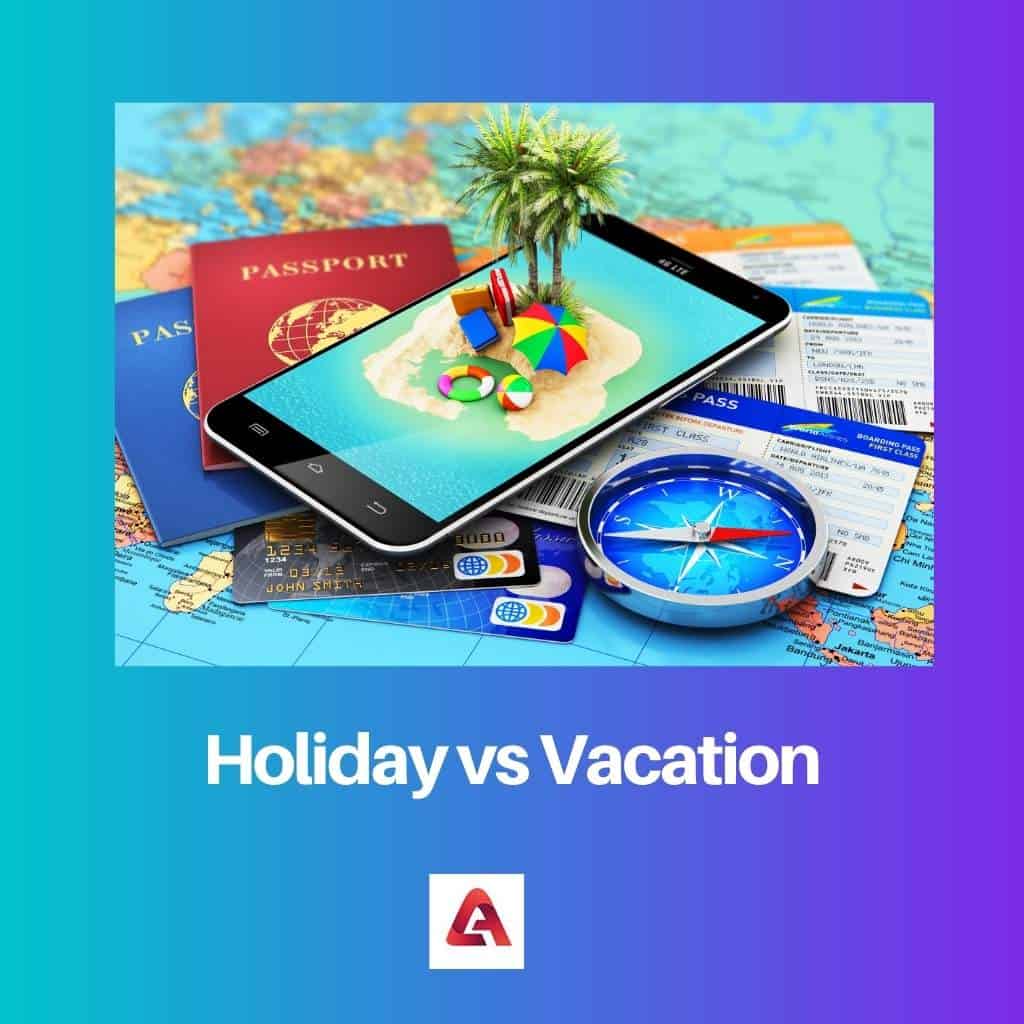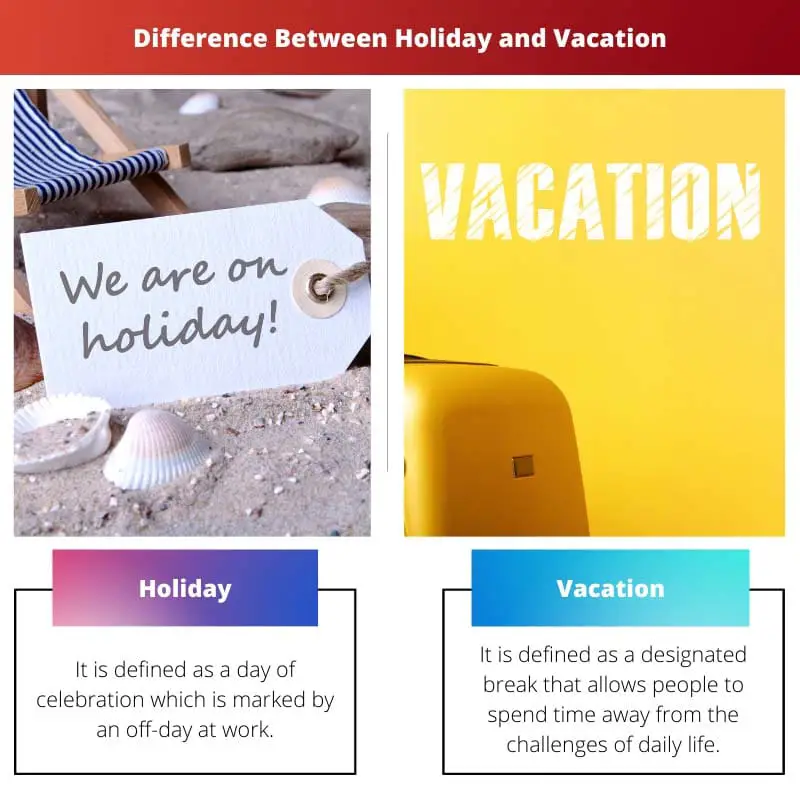Anything related to a break from daily life activities is regarded as leisure. This category of leisure is further subdivided into holidays and vacations. These breaks can be differentiated based on origin and purpose. Once the subdivision is demarcated, it is essential to incorporate the necessary elements.
Key Takeaways
- A holiday is a day or time off, on a special occasion or festival, while a vacation is a period away from work or school.
- Holidays are public or religious, while vacations are planned breaks from daily routines.
- A holiday is a single day, while vacations can last for several days or weeks.
Holiday vs Vacation
In general, a “holiday” is a special day or celebration that is recognized by a country or region, such as Christmas, Easter, Independence Day, or Diwali. A “vacation” is a period of time when an individual or family takes time off from work or school to travel, relax, or engage in leisure activities.

A holiday can be regarded as a normal day that becomes special due to the significance attached to it in the form of important birthdays, milestone events, and many other types of celebrations.
Every festival can be regarded as a holiday. In most cases, holidays are meant to be spent out of the workplace. All the other aspects attached to holidays may or may not be practised based on the main reason for celebration.
Vacation is an umbrella term used to refer to extended holidays which are planned to be spent at some tourist place. No vacation is complete without a restful period dedicated to leisure activities.
Once the vacation begins, the numerous predecided events take place from time to time. It is essential to make the vacation as memorable as possible.
Comparison Table
| Parameters of Comparison | Holiday | Vacation |
|---|---|---|
| Definition | It is defined as a day of celebration which is marked by an off-day at work | It is defined as a designated break that allows people to spend time away from the challenges of daily life |
| Duration | It does not last for more than one or two days | The duration might vary from a weekend to a month, and even more |
| Specialty | Holidays are given on special occasions and some historically important events | No special occasion is necessary as the break is simply for recreation |
| Importance of Travelling | Traveling is not an essential aspect | Vacations do not find much meaning apart from traveling to some other city or town |
| Possibility of Payment | Almost all types of holidays are paid | Vacations may or may not be paid, depending on the protocols of the organization |
What is Holiday?
Holidays are the weekdays regarded as special days which are specifically marked for celebration. This celebration may or may not be grand enough to make the holiday universally valid.
Daily chores might take a backseat in case the holiday is attributed to fasting or practising other forms of devotional activities, patriotic fervour, etc.
Some of the most common activities linked with a holiday include a significant mode of tribute, a festival celebrated as per customs, or other routine activities directed towards a better kind of appeal.
Christmas can be considered to be a perfect example of a holiday. It is dedicated to customary celebrations. A holiday is the same for educational institutions as well as workplaces.
The two main types of holidays are national holidays and local holidays. National holidays are spread across vast areas and most of the social and economic ventures remain closed.
Local holidays may or may not constitute an off. This demarcation also finds its roots in regional disparities based on the history of a particular place.

What is Vacation?
The term “vacation” is used to describe the North American variant of celebrating the time provided for recharging oneself. Celebration or fanfare is not necessary to constitute a successful vacation. It is essential to travel to a nearby or distant place to formulate a “far-flung” vacation. All aspects need to be planned.
On the other hand, even if the vacation is spent at home, it will still be regarded as a successful break. Solitude may or may not be chosen. Once the vacation begins, a lot of fun activities, including shopping, trying new foods, and collecting memories (in the form of photographs, etc.), are practised with utmost enjoyment.
Another form of vacation is a staycation. This is an exclusive type that does not require any type of travel after reaching the destination. Staycations are popularized as visits to special places to embrace a different standard of life. People might indulge in solo staycations or even choose to take their families along.

Main Differences Between Holiday And Vacation
- A holiday can be defined as a normal day devoid of any type of routine, regarded as important due to the historical significance attached to the particular date. On the other hand, vacation incorporates a lot of other interconnected activities during long breaks.
- The special aspect attached to holidays might be a weekend off or a historically significant event. Vacations are seasonal and do not hold much significance like that of festive holidays.
- Vacations last longer than holidays and can be extended as well. On the contrary, holidays are marked on a calendar priorly, and they cannot be changed.
- It is not necessary to travel during a normal holiday, while vacations involve a lot of touring and other adventures which might spark excitement.
- Holidays can be treated as paid leaves, too, while vacations are to be supported by savings. A session break might also be paid at times, depending on the category of incentives.





